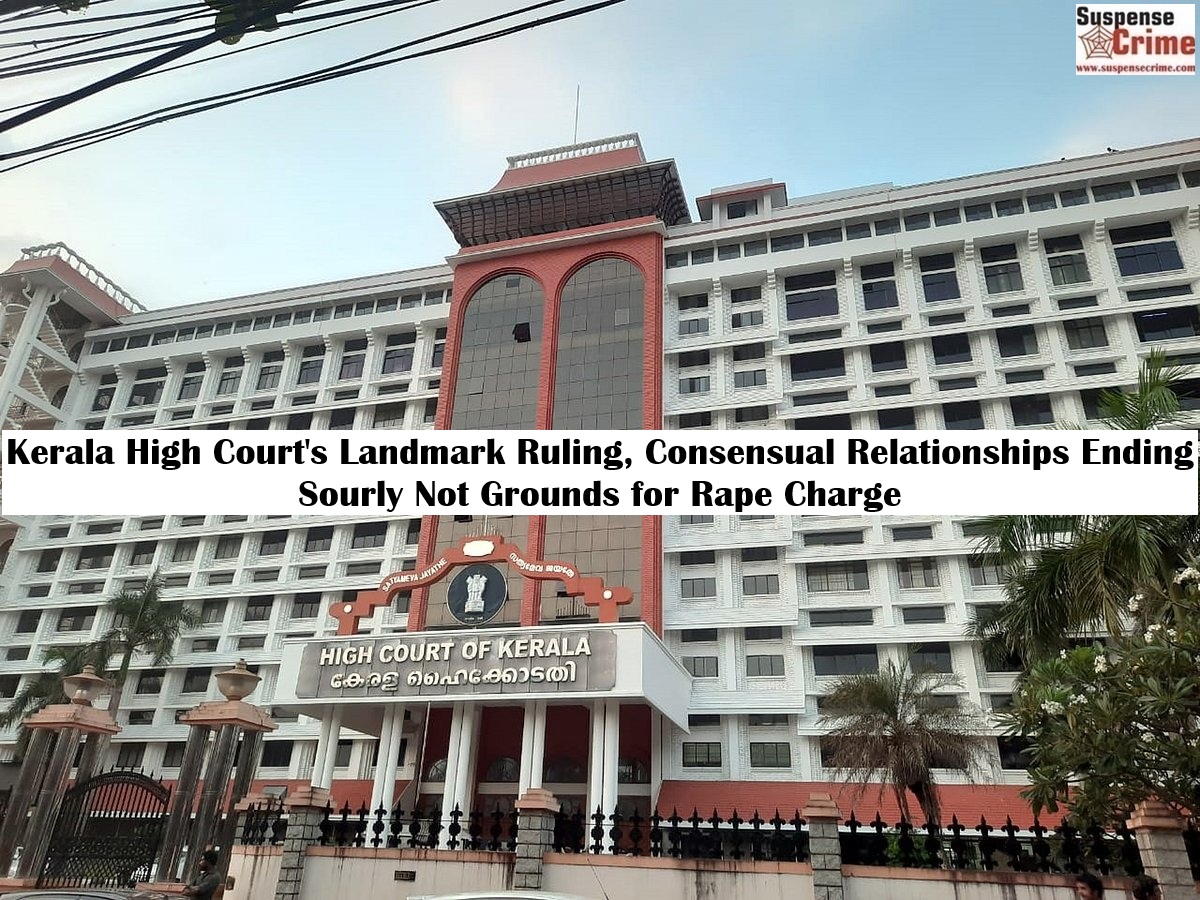
Suspense crime, Digital Desk : In a significant judgment poised to bring more clarity to complex relationship disputes, the Kerala High Court has ruled that a consensual sexual relationship that eventually sours cannot automatically be categorized as rape. This ruling addresses a frequent legal contention, particularly in cases where a man is accused of rape after a promise of marriage fails to materialize.
The High Court emphasized a crucial distinction: consent given under a "misconception of fact" is different from a mere "breach of promise." The court clarified that for a sexual act to be considered rape under Indian Penal Code (IPC) Section 375 due to a false promise of marriage, it must be proven that the promise was false from its very inception. This means the accused had no intention of marrying the complainant at the time consent was given.
Justice Kauser Edappagath, delivering the judgment, highlighted that relationships between consenting adults are dynamic and complex. He noted that circumstances can change, and a genuine intention to marry at one point might evolve or diminish, leading to a breakdown of the relationship. Such a "breach of promise" to marry, without fraudulent intent from the start, does not transform the consensual sexual acts into rape.
The court also stressed the importance of the woman's maturity and understanding, especially when both parties are adults involved in a consensual relationship. This ruling aims to prevent the misuse of rape charges as a tool to settle personal grievances when relationships simply go wrong, while still ensuring that genuine cases of fraud and exploitation are addressed.
This judgment provides much-needed legal perspective, reinforcing the principle that the ending of a consensual relationship, even with unfulfilled promises, does not inherently equate to a criminal offense unless deceit was present from the very beginning.
Read More: The Hostel Segregation Row What the SC Stay on UGC 2026 Regulations Means for You

 Share
Share


_1531794722_100x75.jpg)
_591321350_100x75.jpg)